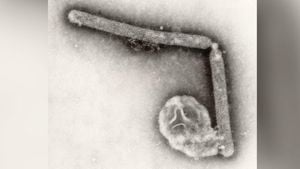On April 22, 2025, the trial for five former members of Canada’s World Junior Championship hockey team, charged with sexual assault, is set to commence. This highly publicized case revolves around accusations against Carter Hart, Cal Foote, Michael McLeod, Dillon Dube, and Alex Formenton, all implicated following allegations stemming from an incident at a London, Ontario, hotel room after the team celebrated their championship win on June 19, 2018. The trial is expected to last approximately eight weeks.
The legal proceedings come after years of investigation and controversy. Initially, the London police closed the investigation shortly after the incident occurred, citing insufficient evidence. This decision was met with public outcry, prompting Hockey Canada to reach a settlement with the alleged victim, referred to as E.M., which included her accusation of sexual assault by multiple players. This settlement emerged amid increasing scrutiny of the organization's handling of abuse allegations, leading to the resignations of Hockey Canada’s board and significant reforms within the organization.
The criminal investigation was rekindled after reports revealed the settlement and public demand for accountability. Police re-opened their investigation, which not only brought attention to the case but also criticized the systemic issues within Hockey Canada.
All five players are expected to enter not guilty pleas. They had previously taken leaves of absence from their professional teams following the charges, and none of them was re-signed following the expiration of their contracts this past summer.
The case has raised important discussions around accountability and conduct within sports. Specifically, it highlights the power dynamics and cultural factors at play within the hockey community, where young athletes may face adverse consequences for their actions.
The incident’s origins trace back to the night of the alleged assault, where E.M. claimed she had willingly interacted with players at a London bar but later faced coercive circumstances upon reaching the hotel. She described being subjected to various forms of assault, both physically and emotionally, leading to long-lasting concerns about how such incidents are perceived and managed within sports institutions.
Lawyers for the accused have expressed their commitment to contesting the allegations vigorously. They assert their clients' innocence, framing the upcoming trial as not only a legal battle but also a challenge to address the broader issues surrounding consent, respect, and the culture of impunity often present in sports.
Public interest remains high as journalists and sports advocates continue to monitor developments closely, demanding transparency and hoping for more stringent measures to prevent such incidents from recurring. The trial has been positioned as pivotal for the future of Canadian hockey, testing the sport's institutional integrity and its response to allegations of sexual violence.
This case will likely resonate beyond the courtroom, impacting how hockey — and sports at large — engage with issues of conduct, accountability, and reform both during and after the trial. It serves as a reminder of the need for systemic change within sporting organizations to protect potential victims and hold perpetrators accountable.
Moving forward, as jury selection approaches, many will be watching closely to see how the legal system navigates these allegations and the potential ramifications for both the accused players and Hockey Canada.



